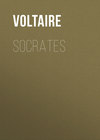Buch lesen: «A Philosophical Dictionary, Volume 07», Seite 14
MEETINGS (PUBLIC)
Meeting, "assemblée," is a general term applicable to any collection of people for secular, sacred, political, conversational, festive, or corporate purposes; in short, to all occasions on which numbers meet together.
It is a term which prevents all verbal disputes, and all abusive and injurious implications by which men are in the habit of stigmatizing societies to which they do not themselves belong.
The legal meeting or assembly of the Athenians was called the "church". This word "church", being peculiarly appropriated among us to express a convocation of Catholics in one place, we did not in the first instance apply it to the public assembly of Protestants; but used indeed the expression – "a flock of Huguenots." Politeness however, which in time explodes all noxious terms, at length employed for the purpose the term "assembly" or "meeting", which offends no one. In England the dominant Church applies the name of "meeting" to the churches of all the non-conformists.
The word "assembly" is particularly suitable to a collection of persons invited to go and pass their evening at a house where the host receives them with courtesy and kindness, and where play, conversation, supper, and dancing, constitute their amusements. If the number invited be small, it is not called an "assembly", but a "rendezvous of friends"; and friends are never very numerous.
Assemblies are called, in Italian, "conversazione," "ridotto". The word "ridotto" is properly what we once signified by the word "reduit," intrenchment; but "reduit" having sunk into a term of contempt among us, our editors translated "ridout" by "redoubt." The papers informed us, among the important intelligence contained in them relating to Europe, that many noblemen of the highest consideration went to take chocolate at the house of the princess Borghese; and that there was a "redoubt" there. It was announced to Europe, in another paragraph, that there would be a "redoubt" on the following Tuesday at the house of her excellency the marchioness of Santafior.
It was found, however, that in relating the events of war, it was necessary to speak of real redoubts, which in fact implied things actually redoubtable and formidable, from which cannon were discharged. The word was, therefore, in such circumstances, obviously unsuitable to the "ridotti pacifici," the pacific redoubts of mere amusement; and the old term "assembly" was restored, which is indeed the only proper one. "Rendezvous" is occasionally used, but it is more adapted to a small company, and most of all for two individuals.
MESSIAH
Advertisement
This article is by M. Polier de Bottens, of an old French family, settled for two hundred years in Switzerland. He is first pastor of Lausanne, and his knowledge is equal to his piety. He composed this article for the great Encyclopædia, in which it was inserted. Only those passages were suppressed which the examiners thought might be abused by the Catholics, less learned and less pious than the author. It was received with applause by all the wise.
It was printed at the same time in another small dictionary, and was attributed in France to a man whom there was no reluctance to molest. The article was supposed to be impious, because it was supposed to be by a layman; and the work and its pretended author were violently attacked. The man thus accused contented himself with laughing at the mistake. He beheld with compassion this instance of the errors and injustices which men are every day committing in their judgments; for he had the wise and learned priest's manuscript, written by his own hand. It is still in his possession, and will be shown to whoever may choose to examine it. In it will be found the very erasures made by this layman himself, to prevent malignant interpretations.
Now we reprint this article in all the integrity of the original. We have contracted it only to prevent repeating what we have printed elsewhere; but we have not added a single word.
The best of this affair is, that one of the venerable author's brethren wrote the most ridiculous things in the world against this article of his reverend brother's, thinking that he was writing against a common enemy. This is like fighting in the dark, when one is attacked by one's own party.
It has a thousand times happened that controversialists have condemned passages in St. Augustine and St. Jerome, not knowing that they were by those fathers. They would anathematize a part of the New Testament if they had not heard by whom it was written. Thus it is that men too often judge.
Messiah, "Messias." This word comes from the Hebrew, and is synonymous with the Greek word "Christ." Both are terms consecrated in religion, which are now no longer given to any but the anointed by eminence – the Sovereign Deliverer whom the ancient Jewish people expected, for whose coming they still sigh, and whom the Christians find in the person of Jesus the Son of Mary, whom they consider as the anointed of the Lord, the Messiah promised to humanity. The Greeks also use the word "Elcimmeros", meaning the same thing as "Christos."
In the Old Testament we see that the word "Messiah," far from being peculiar to the Deliverer, for whose coming the people of Israel sighed, was not even so to the true and faithful servants of God, but that this name was often given to idolatrous kings and princes, who were, in the hands of the Eternal, the ministers of His vengeance, or instruments for executing the counsels of His wisdom. So the author of "Ecclesiasticus" says of Elisha: "Qui ungis reges ad penitentiam;" or, as it is rendered by the "Septuagint," "ad vindictam" – "You anoint kings to execute the vengeance of the Lord". Therefore He sent a prophet to anoint Jehu, king of Israel, and announced sacred unction to Hazael, king of Damascus and Syria; those two princes being the Messiahs of the Most High, to revenge the crimes and abominations of the house of Ahab.
But in Isaiah, xlv., 1, the name of Messiah is expressly given to Cyrus: "Thus saith the Lord to Cyrus, His anointed, His Messiah, whose right hand I have holden to subdue nations before him." etc.
Ezekiel, in his Revelations, xxviii., 14, gives the name of Messiah to the king of Tyre, whom he also calls Cherubin, and speaks of him and his glory in terms full of an emphasis of which it is easier to feel the beauties than to catch the sense. "Son of man," says the Eternal to the prophet, "take up a lamentation upon the king of Tyre, and say unto him, Thus saith the Lord God; thou sealest up the sun, full of wisdom, and perfect in beauty. Thou hast been the Lord's Garden of Eden" – or, according to other versions, "Thou wast all the Lord's delight" – "every precious stone was thy covering; the sardius, topaz, and the diamond; the beryl, the onyx, and the jasper; the sapphire, the emerald, and the carbuncle and gold: the workmanship of thy tabrets and thy pipes was prepared in thee in the day that thou wast created. Thou wast a Cherubin, a Messiah, for protection, and I set thee up; thou hast been upon the holy mountain of God; thou hast walked up and down in the midst of the stones of fire. Thou wast perfect in thy ways from the day that thou was created till iniquity was found in thee."
And the name of Messiah, in Greek, Christ, was given to the king, prophets, and high priests of the Hebrews. We read, in I. Kings, xii., 5: "The Lord is witness against you, and his Messiah is witness"; that is, the king whom he has set up. And elsewhere: "Touch not my Anointed; do no evil to my prophets…" David, animated by the Spirit of God, repeatedly gives to his father-in-law Saul, whom he had no cause to love – he gives, I say, to this reprobate king, from whom the Spirit of the Eternal was withdrawn, the name and title of Anointed, or Messiah of the Lord. "God preserve me," says he frequently, "from laying my hand upon the Lord's Anointed, upon God's Messiah."
If the fine title of Messiah, or Anointed of the Eternal, was given to idolatrous kings, to cruel and tyrannical princes, it very often indeed, in our ancient oracles, designated the real Anointed of the Lord, the Messiah by eminence; the object of the desire and expectation of all the faithful of Israel. Thus Hannah, the mother of Samuel, concluded her canticle with these remarkable words, which cannot apply to any king, for we know that at that time the Jews had not one: "The Lord shall judge the ends of the earth; and He shall give strength unto His king, and exalt the horn of His Messiah." We find the same word in the following oracles: Psalm ii, 2; Jeremiah, Lamentations, iv, 20; Daniel, ix, 25; Habakkuk, iii, 13.
If we compare all these different oracles, and in general all those ordinarily applied to the Messiah, there will result contradictions, almost irreconcilable, justifying to a certain point the obstinacy of the people to whom these oracles were given.
How indeed could these be conceived, before the event had so well justified it in the person of Jesus, Son of Mary? How, I say, could there be conceived an intelligence in some sort divine and human together; a being both great and lovely, triumphing over the devil, yet tempted and carried away by that infernal spirit, that prince of the powers of the air, and made to travel in spite of himself; at once master and servant, king and subject, sacrificer and victim, mortal and immortal, rich and poor, a glorious conqueror, whose reign shall have no end, who is to subdue all nature by prodigies, and yet a man of sorrows, without the conveniences, often without the absolute necessaries of this life, of which he calls himself king; and that he comes, covered with glory and honor, terminating a life of innocence and wretchedness, of incessant crosses and contradictions, by a death alike shameful and cruel, finding in this very humiliation, this extraordinary abasement, the source of an unparalleled elevation, which raises him to the summit of glory, power, and felicity; that is, to the rank of the first of creatures?
All Christians agree in finding these characteristics, apparently so incompatible, in the person of Jesus of Nazareth, whom they call the "Christ"; His followers gave Him this title by eminence, not that He had been anointed in a sensible and material manner, as some kings, prophets, and sacrificers anciently were, but because the Divine Spirit had designated Him for those great offices, and He had received the spiritual unction necessary thereunto.
We had proceeded thus far on so competent an article, when a Dutch preacher, more celebrated for this discovery than for the indifferent productions of a genius otherwise feeble and ill-formed, showed to us that our Lord Jesus Christ, the Messiah of God, was anointed at the three grand periods of His life, as our King, our Prophet, and our Sacrificer.
At the time of His baptism, the voice of the Sovereign Master of nature declared Him to be His Son, His only, His well-beloved Son, and for that very reason His representative.
When on Mount Tabor He was transfigured and associated with Moses and Elias, the same supernatural voice announces Him to humanity as the Son of Him who loves and who sends the prophets; as He who is to be hearkened to in preference to all others.
In Gethsemane, an angel comes down from heaven to support Him in the extreme anguish occasioned by the approach of His torments, and strengthen Him against the terrible apprehensions of a death which He cannot avoid, and enable Him to become a sacrificer the more excellent, as Himself is the pure and innocent victim that He is about to offer.
The judicious Dutch preacher, a disciple of the illustrious Cocceius, finds the sacramental oil of these different celestial unctions in the visible signs which the power of God caused to appear on His anointed; in His baptism, "the shadow of the dove," representing the Holy Ghost coming down from Him; on Tabor, the "miraculous cloud," which enveloped Him; in Gethsemane, the "bloody sweat," which covered His whole body.
After this, it would indeed be the height of incredulity not to recognize by these marks the Lord's Anointed by eminence – the promised Messiah; nor doubtless could we sufficiently deplore the inconceivable blindness of the Jewish people, but that it was part of the plan of God's infinite wisdom, and was, in His merciful views, essential to the accomplishment of His work and the salvation of humanity.
But it must also be acknowledged, that in the state of oppression in which the Jewish people were groaning, and after all the glorious promises which the Eternal had so often made them, they must have longed for the coming of a Messiah, and looked towards it as the period of their happy deliverance; and that they are therefore to an extent excusable for not having recognized a deliverer in the person of the Lord Jesus, since it is in man's nature to care more for the body than for the spirit, and to be more sensible to present wants than flattered by advantages "to come," and for that very reason, always uncertain.
It must indeed be believed that Abraham, and after him a very small number of patriarchs and prophets, were capable of forming an idea of the nature of the spiritual reign of the Messiah; but these ideas would necessarily be limited to the narrow circle of the inspired, and it is not astonishing that, being unknown to the multitude, these notions were so far altered that, when the Saviour appeared in Judæa, the people, their doctors, and even their princes, expected a monarch – a conqueror – who, by the rapidity of his conquests was to subdue the whole world. And how could these flattering ideas be reconciled with the abject and apparently miserable condition of Jesus Christ? So, feeling scandalized by His announcing Himself as the Messiah, they persecuted Him, rejected Him, and put Him to the most ignominious death. Having since then found nothing tending to the fulfilment of their oracles, and being unwilling to renounce them, they indulge in all sorts of ideas, each one more chimerical than the one preceding.
Thus, when they beheld the triumphs of the Christian religion, and found that most of their ancient oracles might be explained spiritually, and applied to Jesus Christ, they thought proper, against the opinion of their fathers, to deny that the passages which we allege against them are to be understood of the Messiah, thus torturing our Holy Scriptures to their own loss.
Some of them maintain that their oracles have been misunderstood; that it is in vain to long for the coming of a Messiah, since He has already come in the person of Ezechias. Such was the opinion of the famous Hillel. Others more lax, or politely yielding to times and circumstances, assert that the belief in the coming of a Messiah is not a fundamental article of faith, and that the denying of this dogma either does not injure the integrity of the law, or injures it but slightly. Thus the Jew Albo said to the pope, that "to deny the coming of the Messiah was only to cut off a branch of the tree without touching the root."
The celebrated rabbi, Solomon Jarchi or Raschi, who lived at the commencement of the twelfth century, says, in his "Talmudes," that the ancient Hebrews believed the Messiah to have been born on the day of the last destruction of Jerusalem by the Roman armies. This is indeed calling in the physician when the man is dead.
The rabbi Kimchi, who also lived in the twelfth century, announced that the Messiah, whose coming he believed to be very near, would drive the Christians out of Judæa, which was then in their possession; and it is true that the Christians lost the Holy Land; but it was Saladin who vanquished them. Had that conqueror but protected the Jews, and declared for them, it is not unlikely that in their enthusiasm they would have made him their Messiah.
Sacred writers, and our Lord Jesus Himself, often compare the reign of the Messiah and eternal beatitude to a nuptial festival or a banquet; but the Talmudists have strangely abused these parables; according to them, the Messiah will give to his people, assembled in the land of Canaan, a repast in which the wine will be that which was made by Adam himself in the terrestrial paradise, and which is kept dry, in vast cellars, by the angels at the centre of the earth.
At the first course will be served up the famous fish called the great Leviathan, which swallows up at once a smaller fish, which smaller fish is nevertheless three hundred leagues long; the whole mass of the waters is laid upon Leviathan. In the beginning God created a male and a female of this fish; but lest they should overturn the land, and fill the world with their kind, God killed the female, and salted her for the Messiah's feast.
The rabbis add, that there will also be killed for this repast the bull Behemoth, which is so large that he eats each day the hay from a thousand mountains. The female of this bull was killed in the beginning of the world, that so prodigious a species might not multiply, since this could only have injured the other creatures; but they assure us that the Eternal did not salt her, because dried cow is not so good as she-Leviathan. The Jews still put such faith in these rabbinical reveries that they often swear by their share of the bull Behemoth, as some impious Christians swear by their share of paradise.
After such gross ideas of the coming of the Messiah, and of His reign, is it astonishing that the Jews, ancient as well as modern, and also some of the primitive Christians unhappily tinctured with all these reveries, could not elevate themselves to the idea of the divine nature of the Lord's Anointed, and did not consider the Messiah as God? Observe how the Jews express themselves on this point in the work entitled "Judæi Lusitani Quæstiones ad Christianos." "To acknowledge a God-man," say they, "is to abuse your own reason, to make to yourself a monster – a centaur – the strange compound of two natures which cannot coalesce." They add, that the prophets do not teach that the Messiah is God-man; that they expressly distinguish between God and David, declaring the former to be Master, the latter servant.
When the Saviour appeared, the prophecies, though clear, were unfortunately obscured by the prejudices imbibed even at the mother's breast. Jesus Christ Himself, either from deference towards or for fear of shocking, the public opinion, seems to have been very reserved concerning His divinity. "He wished," says St. Chrysostom, "insensibly to accustom His auditors to the belief of a mystery so far above their reason. If He takes upon Him the authority of a God, by pardoning sin, this action raises up against Him all who are witnesses of it. His most evident miracles cannot even convince of His divinity those in whose favor they are worked. When, before the tribunal of the Sovereign Sacrificer, He acknowledges, by a modest intimation, that He is the Son of God, the high priest tears his robe and cries, 'Blasphemy!' Before the sending of the Holy Ghost, the apostles did not even suspect the divinity of their dear Master. He asks them what the people think of Him; and they answer, that some take Him for Elias, other for Jeremiah, or some other prophet. A particular revelation is necessary to make known to St. Peter, that Jesus is the Christ, the Son of the living God."
The Jews, revolting against the divinity of Christ, have resorted to all sorts of expedients to destroy this great mystery; they distort the meaning of their own oracles, or do not apply them to the Messiah; they assert that the name of God, "Eloï," is not peculiar to the Divinity, but is given, even by sacred writers, to judges, to magistrates, and in general to such as are high in authority; they do, indeed, cite a great many passages of the Holy Scriptures that justify this observation, but which do not in the least affect the express terms of the ancient oracles concerning the Messiah.
Lastly, they assert, that if the Saviour, and after Him the evangelists, the apostles, and the first Christians, call Jesus the Son of God, this august term did not in the evangelical times signify anything but the opposite of son of Belial – that is, a good man, a servant of God, in opposition to a wicked man, one without the fear of God.
If the Jews have disputed with Jesus Christ His quality of Messiah and His divinity, they have also used every endeavor to bring Him into contempt, by casting on His birth, His life, and His death, all the ridicule and opprobrium that their criminal malevolence could imagine.
Of all the works which the blindness of the Jews has produced, there is none more odious and more extravagant than the ancient book entitled "Sepher Toldos Jeschu," brought to light by Wagenseil, in the second volume of his work entitled "Tela Ignea," etc.
In this "Sepher Toldos Jeschu," we find a monstrous history of the life of our Saviour, forged with the utmost passion and disingenuousness. For instance, they have dared to write that one Panther, or Pandera, an inhabitant of Bethlehem, fell in love with a young woman married to Jokanam. By this impure commerce he had a son called Jesua or Jesu. The father of this child was obliged to fly, and retired to Babylon. As for young Jesu, he was not sent to the schools; but – adds our author – he had the insolence to raise his head and uncover himself before the sacrificers, instead of appearing before them with his head bent down and his face covered, as was the custom – a piece of effrontery which was warmly rebuked; this caused his birth to be inquired into, which was found to be impure, and soon exposed him to ignominy.
This detestable book, "Sepher Toldos Jeschu," was known in the second century: Celsus confidently cites it and Origen refutes it in his ninth chapter.
There is another book also entitled "Toldos Jeschu," published by Huldric in 1703, which more closely follows the "Gospel of the Infancy," but which is full of the grossest anachronisms. It places both the birth and death of Jesus Christ in the reign of Herod the Great, stating that complaints were made of the adultery of Panther and Mary, the mother of Jesus, to that prince.
The author, who takes the name of Jonathan, and calls himself a contemporary of Jesus Christ, living at Jerusalem, pretends that Herod consulted, in the affair of Jesus Christ, the senators of a city in the land of Cæsarea. We will not follow so absurd an author through all his contradictions.
Yet it is under cover of all these calumnies that the Jews keep up their implacable hatred against the Christians and the gospel. They have done their utmost to alter the chronology of the Old Testament, and to raise doubts and difficulties respecting the time of our Saviour's coming.
Ahmed-ben-Cassum-la-Andacousy, a Moor of Granada, who lived about the close of the sixteenth century, cites an ancient Arabian manuscript, which was found, together with sixteen plates of lead engraved with Arabian characters, in a grotto near Granada. Don Pedro y Quinones, archbishop of Granada, has himself borne testimony to this fact. These leaden plates, called those of Granada, were afterwards carried to Rome, where, after several years' investigation, they were at last condemned as apocryphal, in the pontificate of Alexander VII.; they contain only fabulous stories relating to the lives of Mary and her Son.
The time of Messiah, coupled with the epithet "false", is still given to those impostors who, at various times, have sought to abuse the credulity of the Jewish nation. There were some of these false Messiahs even before the coming of the true Anointed of God. The wise Gamaliel mentions one Theodas, whose history we read in Josephus' "Jewish Antiquities," book xx. chap. 2. He boasted of crossing the Jordan without wetting his feet; he drew many people after him; but the Romans, having fallen upon his little troop, dispersed them, cut off the head of their unfortunate chief, and exposed it in Jerusalem.
Gamaliel also speaks of Judas the Galilean, who is doubtless the same of whom Josephus makes mention in the second chapter of the second book of the "Jewish War". He says that this false prophet had gathered together nearly thirty thousand men; but hyperbole is the Jewish historian's characteristic.
In the apostolic times, there was Simon, surnamed the Magician, who contrived to bewitch the people of Samaria, so that they considered him as "the great power of God."
In the following century, in the years 178 and 179 of the Christian era, in the reign of Adrian, appeared the false Messiah, Barcochebas, at the head of an army. The emperor sent against them Julius Severus, who, after several encounters, enclosed them in the town of Bither; after an obstinate defence it was carried, and Barcochebas taken and put to death. Adrian thought he could not better prevent the continual revolt of the Jews than by issuing an edict, forbidding them to go to Jerusalem; he also had guards stationed at the gates of the city, to prevent the rest of the people of Israel from entering it.
We read in Socrates, an ecclesiastical historian, that in the year 434, there appeared in the island of Candia a false Messiah calling himself Moses. He said he was the ancient deliverer of the Hebrews, raised from the dead to deliver them again.
A century afterwards, in 530, there was in Palestine a false Messiah named Julian; he announced himself as a great conqueror, who, at the head of his nation, should destroy by arms the whole Christian people. Seduced by his promises, the armed Jews butchered many of the Christians. The emperor Justinian sent troops against him; battle was given to the false Christ; he was taken, and condemned to the most ignominious death.
At the beginning of the eighth century, Serenus, a Spanish Jew, gave himself out as a Messiah, preached, had some disciples, and, like them, died in misery.
Several false Messiahs arose in the twelfth century. One appeared in France in the reign of Louis the Young; he and all his adherents were hanged, without its ever being known what was the name of the master or of the disciples.
The thirteenth century was fruitful in false Messiahs; there appeared seven or eight in Arabia, Persia, Spain, and Moravia; one of them, calling himself David el Roy, passed for a very great magician; he reduced the Jews, and was at the head of a considerable party; but this Messiah was assassinated.
James Zeigler, of Moravia, who lived in the middle of the sixteenth century, announced the approaching manifestation of the Messiah, born, as he declared, fourteen years before; he had seen him, he said, at Strasburg, and he kept by him with great care a sword and a sceptre, to place them in his hands as soon as he should be old enough to teach. In the year 1624, another Zeigler confirmed the prediction of the former.
In the year 1666, Sabatei Sevi, born at Aleppo, called himself the Messiah foretold by the Zeiglers. He began with preaching on the highways and in the fields, the Turks laughing at him, while his disciples admired him. It appears that he did not gain over the mass of the Jewish nation at first; for the chiefs of the synagogue of Smyrna passed sentence of death against him; but he escaped with the fear only, and with banishment.
He contracted three marriages, of which it is asserted he did not consummate one, saying that it was beneath him so to do. He took into partnership one Nathan Levi; the latter personated the prophet Elias, who was to go before the Messiah. They repaired to Jerusalem, and Nathan there announced Sabatei Sevi as the deliverer of nations. The Jewish populace declared for them, but such as had anything to lose anathematized them.
To avoid the storm, Sevi fled to Constantinople, and thence to Smyrna, whither Nathan Levi sent to him four ambassadors, who acknowledged and publicly saluted him as the Messiah. This embassy imposed on the people, and also on some of the doctors, who declared Sabatei Sevi to be the Messiah, and king of the Hebrews. But the synagogue of Smyrna condemned its king to be impaled.
Sabatei put himself under the protection of the cadi of Smyrna, and soon had the whole Jewish people on his side; he had two thrones prepared, one for himself, the other for his favorite wife; he took the title of king of kings, and gave to his brother, Joseph Sevi, that of king of Judah. He promised the Jews the certain conquest of the Ottoman Empire; and even carried his insolence so far as to have the emperor's name struck out of the Jewish liturgy, and his own substituted.
He was thrown into prison at the Dardanelles; and the Jews gave out that his life was spared only because the Turks well knew he was immortal. The governor of the Dardanelles grew rich by the presents which the Jews lavished, in order to visit their king, their imprisoned Messiah, who, though in irons, retained all his dignity, and made them kiss his feet.
Meanwhile the sultan, who was holding his court at Adrianople, resolved to put an end to this farce: he sent for Sevi, and told him that if he was the Messiah he must be invulnerable; to which Sevi assented. The grand signor then had him placed as a mark for the arrows of his icoglans. The Messiah confessed that he was not invulnerable, and protested that God sent him only to bear testimony to the holy Mussulman religion. Being beaten by the ministers of the law, he turned Mahometan; he lived and died equally despised by the Jews and Mussulmans; which cast such discredit on the profession of false Messiah, that Sevi was the last that appeared.



















